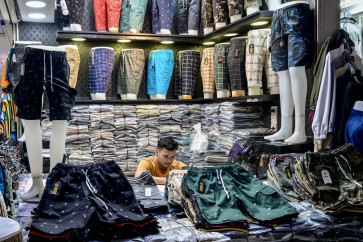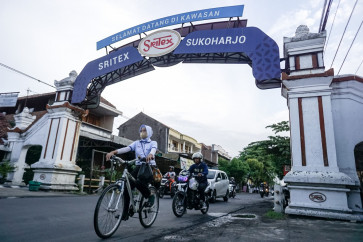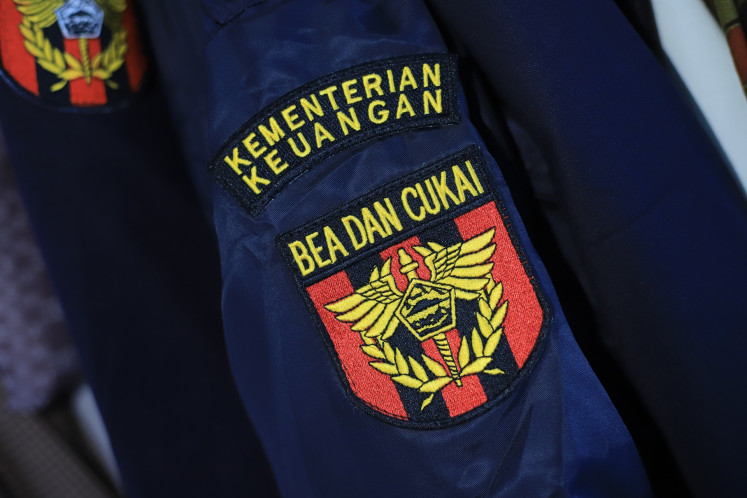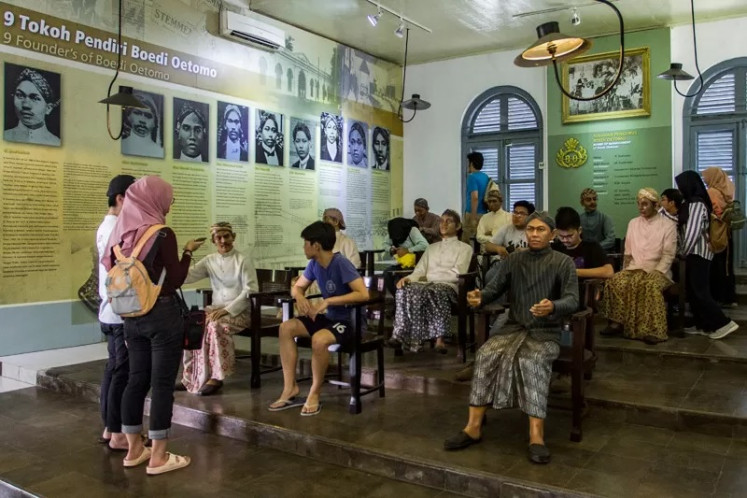Its high-time that we talked old brother
Fortunately, I have mostly fond memories of all things Malaysian
Change text size
Gift Premium Articles
to Anyone

F
ortunately, I have mostly fond memories of all things Malaysian. Since my childhood I have had positive experiences and heard wonderful stories - from both Indonesian's and Malaysian's - that are in stark contrast to the current perception held by many of our neighbor to the north.
The most memorable story was about how my hometown, Bukittinggi, West Sumatra, has for a long time been seen as the sister city of Seremban, Malaysia.
In my young mind I conceived of the many similarities the two cities certainly must share. Aside from the cultural resemblances, I imagined how the sisterhood would allow the people of both cities to work hand in hand to advance and prosper.
I also thought about how that, at a higher level, the two cities more or less represent the two countries, which were actually established on a very similar cultural basis.
My relatives and neighbors also shared the stories of the old Asia Bagus musical TV programs, the Melayu cultural performances and conferences and the tales of their success working in Malaysia, just to name a few positive anecdotes.
The only bad story that I head about Malaysia in my childhood was of course the story of Ganyang Malaysia - a movement that challenged Malaysia's western oriented policies. In the 1950s and 60s they were on the opposite side of the spectrum from Indonesia's leftist first president, Sukarno.
When most official history books and my teachers, who were products of the regime, told me that the confrontation should be supported to show our patriotism, the more objective sources and my regime-outsider teachers gave me a more balanced explanation of how political ideologies can lead people to, intentionally or unintentionally, sacrifice themselves, their loved ones and the things around them; it was this opinion I was convinced to accept.
It is with a similar frame of thought I try to understand the case of a Malaysian Kelantan Prince who has been accused of sexually and physically abusing his Indonesian wife, Manohara. And I have come to the conclusion that the story has been blown out of proportion into a transnational legal issue.
The same thing has happened with the situation in Ambalat, the apparently oil rich group of islands next to Borneo, which has become one of the most hotly contested issues in both countries.
With the campaign for the presidential election heating up it was no surprise that the issue has taken the center stage of national politics. We can see some of the candidates tout themselves as the "true" heroes, as others use place the blame entirely on the tired current president.
The sad part is of course that this all too easily politicized issue takes the focus away from the suffering of the many Indonesian migrant workers, something which should be of far greater concern.
Perhaps this is because this is a tangible issue directly related to the performance of the current incumbents, who, like their predecessors, have failed to solve the issue during their five years in charge. Or could this be because this indeed very sensitive issue is linked to the human trafficking businesses, protected and backed by many of the country's officers and officials?
It should not be forgotten that may of the disputes between Indonesia and Malaysia are the kind of classic rivalry that could be expected in any story of two brothers who separated to live different lives. After a while the two develop and become accustomed to living they was think is best.
Each of them internalizes new ideas and different ways of life. But they still often met each other, except now they represent relatively different cultures. Although they can still speak more or less the same language and understand each other, they speak with different accents.
On a deeper level they have become two individuals with their own interests and prejudices. They can sit at the same table and share a laugh about their childhood, but the atmosphere immediately changes when they speak about businesses or something related to one's respect or dignity.
And this is where the problems between the two brothers started. Coming from the same mother is no longer enough to reconcile disputes.
But to solve disputes it is necessary to sit at the same table. Both parties should endorse a new kind of relationship which is as warm as before but, at the same time, profitable and just for both. Not only do the achievements, but also the weaknesses of one other have to be recognized. Both sides must try to understand the difference between common and individual problems. Simply put, there should be empathy rather than sympathy.
And let's not forget that both sides have often mutually benefited one another. In the past Malaysians learned a lot from Indonesia. They sent their talented young to Indonesian universities while they built their country step by step.
With their huge growth of capital Malaysian businessmen then opened palm plantations in Sumatra and Kalimantan where they employed thousands of Indonesian workers. To meet their need for domestic workers, Malaysians accept thousands of Indonesians. Both parties have cooperated on an incredible range of issues, regardless of inevitable disputes or consequential problems.
The thing that has put the relationship at stake is the dishonest flow of information, or more precisely the manipulation of information by some irresponsible parties. Unfortunately this harmful practice occurs at almost all levels of society.
Everyday we can see politicians and the officials use prejudices and accusations to leverage their images in the eyes of their constituents. We also cannot deny that many businessmen cheat migrant workers into lives where their "employers" treat them as if they are slaves.
Given all of this, it is high time we looked at the root causes of the problems between Indonesia and Malaysia. A conscious effort must be made to put an end to the prejudices, accusations and arrogances and instead an effort must be made to sit at a round table and discuss the issues at hand openly and respectfully.
We have to get away from the dangerous accusations of conspiracy theories, which are indeed useless rumors. The mass media should be responsible for conveying constructive information so that people can make sense of which reports should be paid attention to, and which should be disregarded.
The writer is a teacher.









